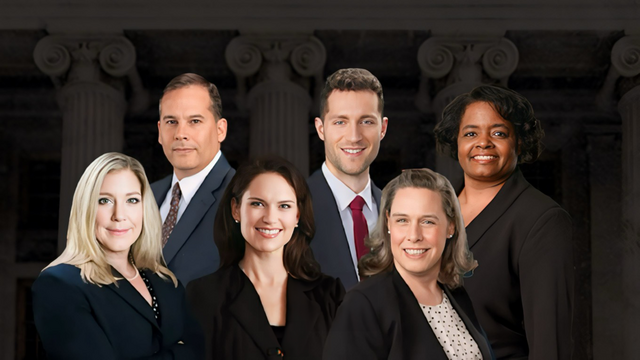Legal Possession of a Firearm in Virginia
Firearm offenses are taken seriously in Virginia, and it is important to adhere to the regulations put forth surrounding them.There are several different variables that may influence whether or not a person can legally possess a firearm in Virginia. If an individual is found to illegally possess a firearm, an attorney would look specifically at the case, the person’s criminal history, and the facts surrounding the charge in order to determine what the consequences may be.
If you have questions about the legal possession of firearms in Virginia you should contact an experienced gun defense attorney to best understand the rules and what to do if you face a violation.
Steps to Legal Possession
When applying for legal possession of a firearm in Virginia, individuals will file out a form and will run through a background check. If they are approved, they are allowed legal possession. If, however, the person has a disqualifying offense that prevent them from owning a firearm, then it is much more challenging to possess a firearm.
If rejected, a person can petition in circuit court in the jurisdiction in which they live to restore their rights to possess a firearm, which a skilled Virginia attorney could assist with.
Individuals Prohibited From Possession
There are several different things that may disqualify a person from possessing a firearm in Virginia. The most crucial element involved is whether a person has a felony conviction in Virginia. A person is not allowed to own a firearm unless they have those rights restored by a court.
There are other things that can forbid a person from possessing a firearm in Virginia, for example, being the respondent of a protective order. The person is not allowed to own a gun during that period of time. It is important to consult with an attorney to determine any further reasons that an individual may not be qualified to lawfully possess a firearm in Virginia.
Carrying a Firearm
People carry firearms for a variety of reasons, but primarily in Virginia, people carry firearms for hunting. Virginia is a state where there are a lot of different kinds of hunting that are available, and it is important to know the rules of having legal possession of a firearm in Virginia when hunting.
Secondary reasons for firearm ownership would include sporting such as a target range or a skeet range. Some carry a weapon in Virginia as well because they feel it enhances their personal safety.
Gun Free Zones
There are gun free zones throughout the state, which includes schools, school buses, courthouses, and most colleges and universities. There are certain facilities, such as parks, national forests, and churches where a person is not allowed to carry a weapon.
Those are some of the most common locations, but if the person is planning on carrying a weapon, they should check the laws of Virginia to figure out where the person can and cannot specifically go with a weapon.
Possession vs. Distribution
At the state level, the governor’s office is more focused on the distribution of firearms than the possession. They are more focused on shutting down the flow of weapons into Virginia. They want stricter controls over the purchase of firearms to ensure that people do not unlawfully possess a weapon.
However, at the local level, laws are enforced more in the possession of the firearms than the distribution. Local law enforcement is cracking down on concealed weapons, people who are legally in possession of weapons, and people who use firearms in the commission of a felony. These are the more possession-based laws that are enforced vigorously on the local level.
Potential Penalties
In Virginia, there are a variety of different penalties that an individual may face for the unlawful possession of a firearm. As a general rule, the crime is a class one misdemeanor. If a person is not allowed to possess a firearm, an attorney would need to determine the reason why the person is disqualified and the overall nature of the offense to determine whether or not enhanced penalties might be available when charging an individual.
The penalties also depend entirely upon the zone that the person is carrying the weapon into. Some crimes will result in a felony charge, while others will result in a misdemeanor. For example, if a person is carrying a weapon, a gun, or a firearm into a school or any school property, that is a class six felony. Most others are class one misdemeanors. When facing these serious penalties regarding unlawful possession, an attorney should be contacted as soon as possible.




